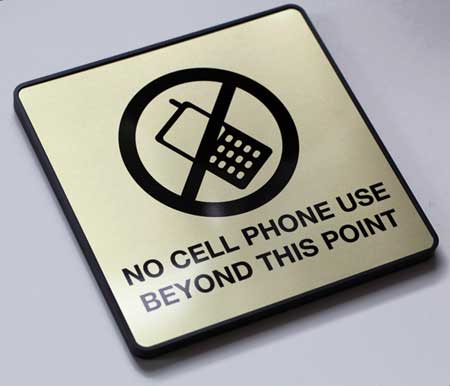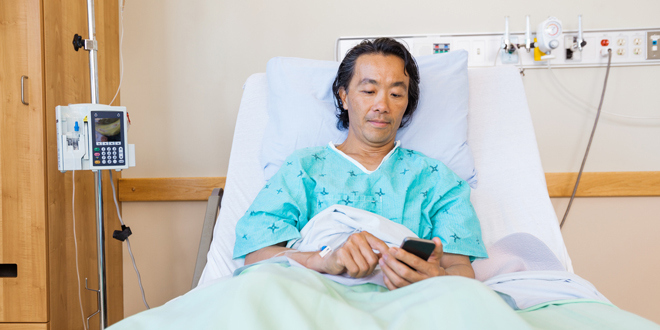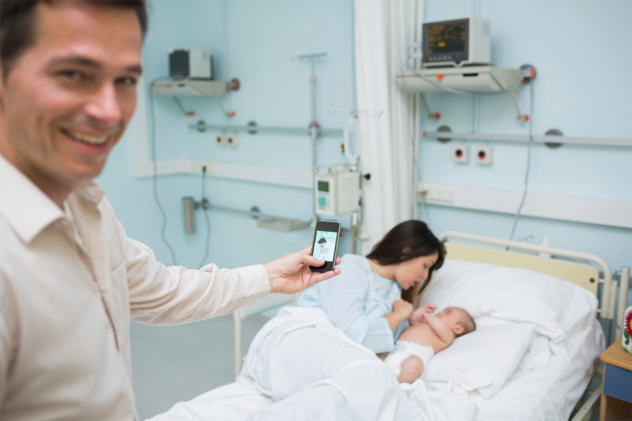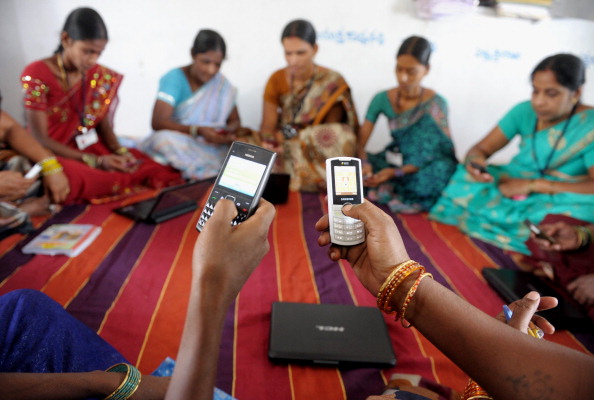[FACT OR FAKE #82] Are Mobile Phones Really Dangerous In Hospitals?
Is there any evidence that signals do, or ever did, disrupt medical equipment? Your weekly SAYS' FACT OR FAKE columnist Sadho explores the deep web to separate fact from fake.
There have been several occasions when I've noticed doctors and other hospital staffs using mobile phones inside the hospital premises, even beyond the customary sign that prohibits the use of mobile phones near ICU and other sensitive areas of a hospital
Just to prove my claim, in a survey in 2004, a good 64% of doctors confessed to leaving their mobile phones switched on in high-risk areas, such as operating theatres or high dependency units
And while many hospitals strictly forbid the use mobile phones in patient areas; in some hospitals, they're banned completely, back in 2007, Andy Burnham, a government representative in the UK, made it clear that the blanket ban is absolutely not necessary
As one BBC report notes, many hospitals are now relaxing the rules regarding banning the use of mobile phones on hospital wards and corridors, but it's taking some time. Back in 2012, a hospital in the Canadian province of Quebec became the first hospital to allow patients and visitors to use their mobile phones.
Actual photo of the hospital to relax its restrictions regarding use of mobile phones inside its premises
Image via ctvnews.caSo do mobile phones actually pose any real threat to hospital equipment? Is there any evidence that mobile phone signals ever did disrupt equipment? How much of all this is a FACT or FAKE?
First things first, contrary to several claims, there are no cases of death related to the use of mobile phones inside hospital premises. If you have read of any such cases, know that it's a hoax, which people at Snopes does a very good job of debunking.
Regarding the question if there's any evidence that mobile phone signals disrupt medical equipment in hospital, as per a study back in 2007, mobile phones were found to interfere with 1 to 4% of devices, but only if they were within a metre of a mobile phone
This might sound like a small number, but if it’s a vital piece of equipment keeping someone alive then it could be critical. Yet the authors of a 2007 paper on the topic could not track down a single death caused by the use of a mobile phone.
Interference from a phone depends on three things – the intensity of the signal, the frequency of the signal and the degree to which equipment is shielded. Whenever a phone is switched on it transmits a signal hoping to make contact with a base station in order to send and receive calls or texts and with smartphones, emails and other data. Once these electromagnetic waves are being transmitted, any length of wire in a piece of medical equipment can act as an antenna. In principle, even the wire linking a patient to a monitor could do it. It’s the resulting electric current which could disrupt the equipment. In the newest kinds of devices the internal wires have been shortened in order to avoid this.
As one 2013 BBC report notes, a few studies have recorded flickering screens and in one case an old infusion pump stopped working. In another study interference was observed in 20% of the tests, but only 1.2% was considered clinically important.
A Dutch study of second and third generation phones tested 61 medical devices used in critical care, and found that 43% were affected by phones.
These ranged from ventilators turning off, to syringe pumps stopping and external pacemakers losing the correct pace.
But the phones were very, very close – the median distance was just 3cm.
Also instead of using real phones, they used a generator which simulated a worst-case scenario, where a phone transmits with increased power in the hope of getting a signal.
(To save on battery power phones transmit at weaker power whenever they can.) In real life, provided the signal in a hospital is good then phones won’t be transmitting at this rate.
While current smartphones cause even less interference and modern medical equipment is better-shielded, the most recent guidance from the National Health Service in Britain still warns against their use in critical or ICU, stating that they could interfere with dialysis machines, defibrillators, ventilators and monitors
For the moment, this could be a wise precaution, because if a phone were held very close to a piece of equipment then it might affect it.
For this reason, some have suggested that medical equipment should come ready-protected from such signals, or that hospitals install phone base stations to prevent the phones from having to transmit at stronger power in order to get a signal. This would, of course, cost hospitals money.
To the contrary, when doctors use mobile phones, the improved communication means they make fewer mistakes
Study leader Keith Ruskin, associate professor in the Departments of Anesthesiology and Neurosurgery
Image via yale.eduFar from causing incidents, mobile phones might even prevent them by allowing doctors to respond faster.
A survey of more than four thousand anaesthesiologists in the US found they were six times more likely to have witnessed an injury or error as a result of delays in communication than to have observed interference of any kind (even non-risky interference) caused by a mobile phone.
"The new digital cell phones used much higher power and operate at a different frequency," Study leader Keith Ruskin said. "The small risks of electromagnetic interference between mobile telephones and medical devices should be weighed against the potential benefits of improved communication."
FAKE: So with the exception of holding mobile phones next to critical care equipment, there is no convincing evidence to prove that mobile phones are dangerous in hospital
Now, this doesn't mean that no caution should be taken—after all, the studies showed that very slight interference could be caused at extremely close range.
For this reason, many health experts still think that they should at least be kept away from operating areas and the most important equipment.
But there might be other reasons why mobile phones are not so desirable in hospitals. They are hard to clean, and how many of us ever do so really? A study of healthcare workers in Southern India found that 95% of their phones were contaminated with bacteria.







